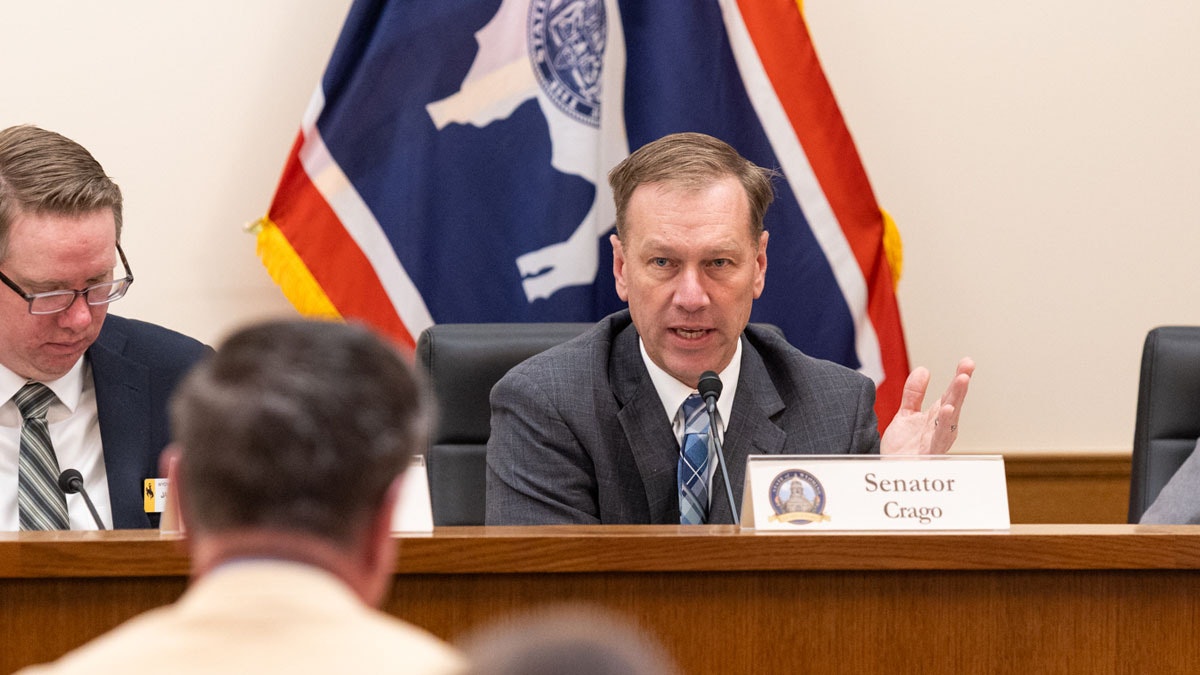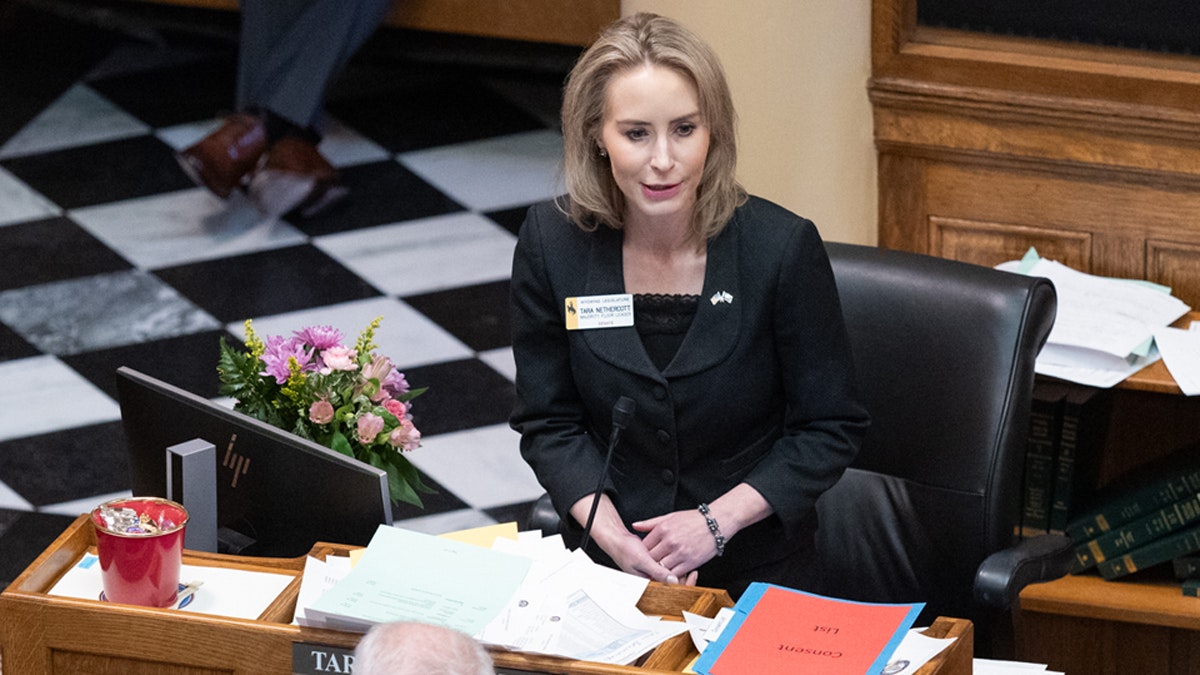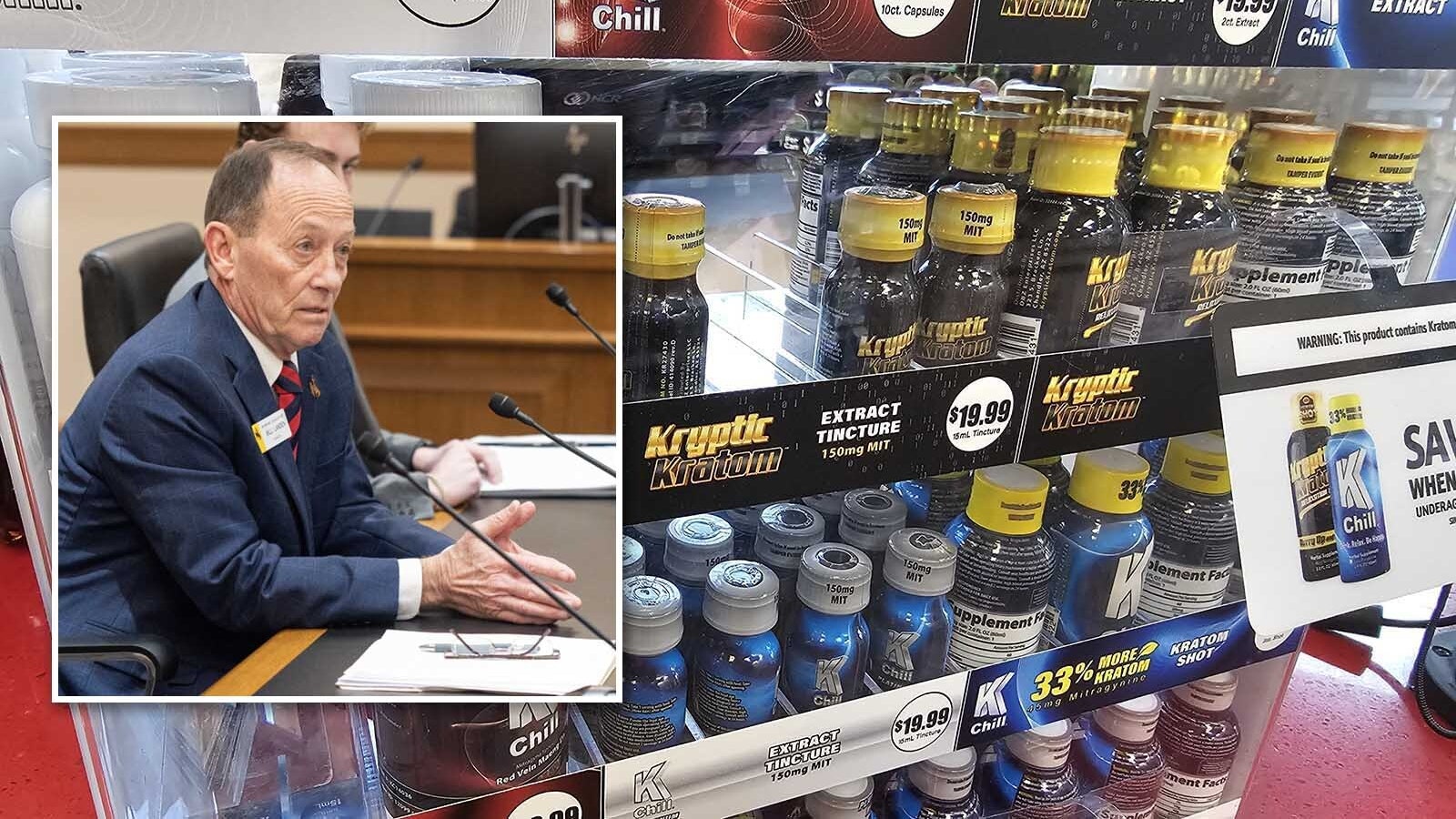CHEYENNE — State legislators on Monday shot down a controversial increase to Wyoming’s fuel tax and recreational vehicle registration fees, despite concerns the Wyoming Department of Transportation could be facing a budget shortfall of more than $400 million.
WYDOT Chief Financial Officer Dennis Byrne in August shared predictions showing his department faces a projected $411 million shortfall over the next decade. That projection, he said at the time, had likely worsened since the department’s analysis.
To solve the problem, some legislators said they must consider raising taxes, while admitting that's an unpopular option in Wyoming.
While the measure was up for approval at an August meeting of the legislative Transportation, Highways and Military Affairs Committee, lawmakers decided to table the measure until October. During the August meeting they also approved an amendment to the bill so that the proposed 10-cent hike would take effect in two parts and not take full effect until the summer of 2028.
The bill would have increased Wyoming’s tax on gasoline and diesel fuel from 24 cents to 29 cents beginning in July 2026 before moving it to 34 cents by June of 2028. The price to register snowmobiles, motorboats and off-road vehicles would have also been increased.
Tough Decision
During a meeting of the Transportation committee Monday, WYDOT Director Darin Westby thanked the committee for considering the bill and explained raising the tax will provide much-needed support to his agency.
Once the meeting moved to committee discussion, Rep. Bob Nicholas called for the tax hike to become a one-time five-cent increase. He argued that move would make the bill easier to pass during the session.
“As it is, it’s going to be a difficult haul,” he said of the bill.
That amendment passed, despite Sen. Stephan Pappas, R-Cheyenne, calling to raise the tax to six cents.
The committee then shot down the tax bill in a 5-7 vote.
The decision comes as average gas prices across Wyoming continue to fall, according to AARP. The average cost of regular fuel is down about three cents per gallon since this time last year.
Natrona County leads the state with the lowest average of $2.57.
Earlier In The Meeting …
Before the vote, Rep. Cody Wylie, R- Rock Springs, had called for the creation of a graphic to explain to taxpayers what could happen if WYDOT was allowed to go without these funds.
Westby said such a task would not be easy, but he would direct WYDOT to work on it.
Nicholas argued that while the tax makes Wyoming look similar to Colorado, WYDOT could also create a chart illustrating Wyoming’s fuel tax compared to surrounding western states. Westby acknowledged Colorado also collects taxes for its department of transportation through other taxes, such as distribution charges for delivering packages.
Pappas noted WYDOT’s deficit may be due to the fact that Wyoming does not allocate as much general fund dollars toward transportation as other western states. Searching for an agreeable solution, he said, seems nearly impossible.
“To try to figure out where we’re going to find the funding to put toward our roads, it’s a very difficult thing,” he said. “We don’t like tolling, we don’t like road usage charge, we don’t like all of these other mechanisms that would raise a lot of money.”
Pump Impacts
Representatives of the Wyoming Petroleum Marketers Association (WPMA) then shared their analysis on how the taxes would impact gas prices, but did not share a stance on it. They used a chart to show that gas prices across the western United States have remained relatively low despite national trends led by crude oil prices.
The group called on legislators to make impose the tax collection at the distributor level, rather than the retail level, due to the burden it could place on gas station owners. WPMA also warned that due to Wyoming’s low population, the tax would hit individual drivers harder at the pump.
An increased fuel tax would pose a comparatively lesser risk to drivers compared to factors like time of year, WPMA said. Summer months when agriculture, construction and tourism reach their peak is one such factor.
The tax could also counteract decreases in the price of crude oil, meaning some drivers may not see savings, the group added.
In the public comment section, Wyoming Trucking Association President Kevin Hawley said his group relies on WYDOT to repair the state’s aging transportation infrastructure. He voiced his support for the measure, saying it would help maintain the state’s roads for his trucks.
“This isn’t a silver bullet, but we have to keep chipping away at it,” he said.
Casey Madison, who identified himself as a fuel jobber of Pine Bluffs’ Sinclair, said the tax would cut into the company’s profits, which are already shrinking due to inflation. He called for “discretion” from the committee to ensure the measure did not backfire on the company.
Winslow Friday of the Wind River Intertribal Council’s Department of Transportation said his group supports the measure due to the way it could help reimburse him for repairs to roads on the Wind River Indian Reservation.
When Sen. Jim Anderson, R- Casper, asked why the Bureau of Indian Affairs does not maintain the roads, Friday said the agency does not take responsibility for road maintenance.
Clarification - an earlier version of this story identified Casey Madison as a Sinclair employee, which Sinclair has said is not the case.
Jackson Walker can be reached at walker@cowboystatedaily.com.






